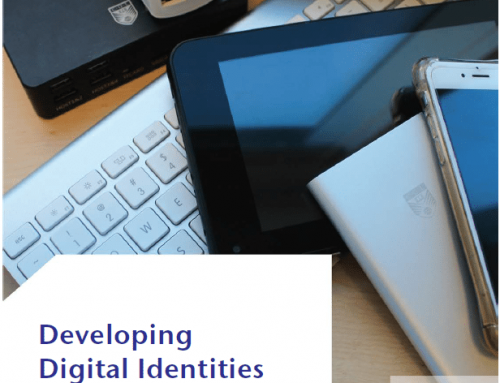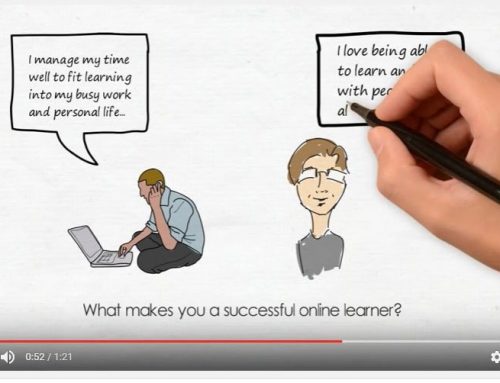It’s never been easier to reinvent yourself as an e-learning expert.
Just by following the few simple steps below you too could be an expert within weeks. The only proviso I would give is that in order to achieve this you must be SHAMELESS.
1. Don’t worry if you have no experience of teaching – we’re all learners after all.
2. Get used to using the word ‘pedagogy‘ – it can make you feel like an imposter at first but with practice it soon trips off the tongue.
3. It is essential to have a blog, but do try to use wordpress rather than blogger – it’s more complicated to use.
4. To develop your blog readership refer a lot to other peoples blog posts – other budding experts will be on the lookout for the competition but may realise the benefit of mutual promotion.
5. Don’t be tempted to use flash – it will be heavily frowned upon by the other experts.
6. Use twitter to self promote at every opportunity and don’t be afraid to tweet about the same blog post more than 10 times in one day – you don’t want to miss any potential readers. Luckily other elearning experts will be keeping an eye out for tweets like this so that they can go and comment on other expert’s blogs.
7. Remember to regularly retweet other experts – some people may even think you said it.
8. Comment on other expert’s blogs. This can be a bit dangerous if that person is actually an expert, so if unsure you could just refer to their post from your blog and this can be displayed at the bottom of their post, if they are expert enough to organise that.
9. It can be useful to focus on one particular aspect of e-learning – there are many you could choose from including, mobile learning, digital literacy, OERS, etc. It is better to focus on these broader issues rather than a particular technology as the latter go in and out of fashion. However you should always keep your eye out for the latest craze and be an early user. This is vital to your chances of success. You just need to persuade your boss that playing with these all day is important to your role.
10. It can be helpful to identify one technology or service that you dislike – facebook, prezi and VLEs are good examples. You will always have blog fodder and there will always be people who agree with you. Those that disagree can post lots of comments about that and so something like this really feeds the e-learning expert movement.
11. Make sure you find out what the current in-jokes are – these can be tricky to join in with in the early stages of your ‘expert’ status but it helps to know them. It is better to try joining in with these through twitter – you can always delete your tweet if everyone ignores you.
12. If playing with new technologies, blogging and tweeting all day gets in the way of your contracted work then you always have the opportunity to set yourself up as an expert consultant. It is best to do this when a few other people have recognised that you are an expert – some manage without this but it is harder.
13. Don’t be tempted to describe yourself as an expert. There will always be someone who will do it for you. An easy way to get such a statement is to arrange to do a testimonial for someone else on LinkedIn in exchange for them doing one for you.
14. It is important to get a band of regular blog and twitter followers. The best way to do this is always answer their comments and messages, even if what they say is meaningless. You are going to have to get used to this so get some practice in early on. These early relationships can develop into hero worship if you manage them well.
15 I think this one may be the most important – don’t be afraid to state the bleeding obvious, because if you don’t do it someone else will, and they’ll steal your kudos. There will always be someone who thinks what you have said is an original thought. The ones that know it’s not original will be clever enough to point people to their own blog posts about the same thing. If this happens alot on one blog post you can always resort to distracting your followers by talking about philiosophy or politics. It is very helpful if you can use very abstract academic language at this point cause everyone forgets that you have made a tit of yourself.
16 It helps to have a beard; )
Please don’t come back to me if this doesn’t work for you. It’s a tried and tested formula.








>Would the same things apply to being a policy expert? I thought I'd aim for that as its a less crowded field with fewer 'genuine' experts. But do I still need a beard and an iPhone?
>Lou, that is fab- would expect no less from someone with your expertise. Going to retweet lots to keep up appearances:-)
Sheila
>You cynic.
Absolutely spot on!
>Great post I've already retweeted it to my followers. If your readers would like to read about my obsession with twitter in education (you'll be reassured I've stopped writing about Google Wave, so yesterday), then they can visit my blog at http://www.rsc-ne-scotland.org.uk/mashe/
Martin
BEng (Hons) Structural Engineering
MSc Multimedia and Interactive Systems
e-Learning Advisor (Higher Education)
JISC RSC Scotland North & East
PS I don't have a beard
>Enjoyed your post. I have at times been involved with learning technologists (I'm not one myself), and some of your points were very clever.
>Ab fab!
>There's an additional one – express your expertise by declaring a technology dead
>and another…..
The e-learning expert is an advocate of Open Access publishing (even though they sit on the board of many esteemed journals) as all information should be free to use (coz we iz all edupunk).
>You missed 'critique other bloggers for their lack of experience, and new their fangledness but never claim that you yourself are authentic, let others infer it"
🙂
Nice post. am guilty of some of those (many?)
>…and of course the real expert keeps an eye on the twitter stream, grabs the good stuff and tweets as if they have found it themselves.
Whereas the rest of us retweet (and thus fall foul of rule 7)
Do we think that the sale of razors will now dramatically increase?
[…] sense. In a world where self promotion is highly effective using the social web – (see ‘how to be an e-learning expert‘ for a tongue-in-cheek description of this) many of these people are enablers – […]
Ok, you are way way too close for comfort on these. The only thing I’m missing is the beard, and as for that, my wife says no!!
Perhaps you could write your own Wikipedia entry to ensure your expertise is easily referenced by those who might suspect its authenticity? No, surely that would be going one step too far even for the most shameless of ‘experts’? 😉
any tips on growing beards?
Hi Lou – Very perceptive and entertaining :). Must mean you are an expert at something. It’s a bit late for me to be IN this conversation, which is typical, and probably why I’ll never achieve expert status myself. Which leads me to suggest adding
“and be quick abut it” at points 4, 8 and 14.